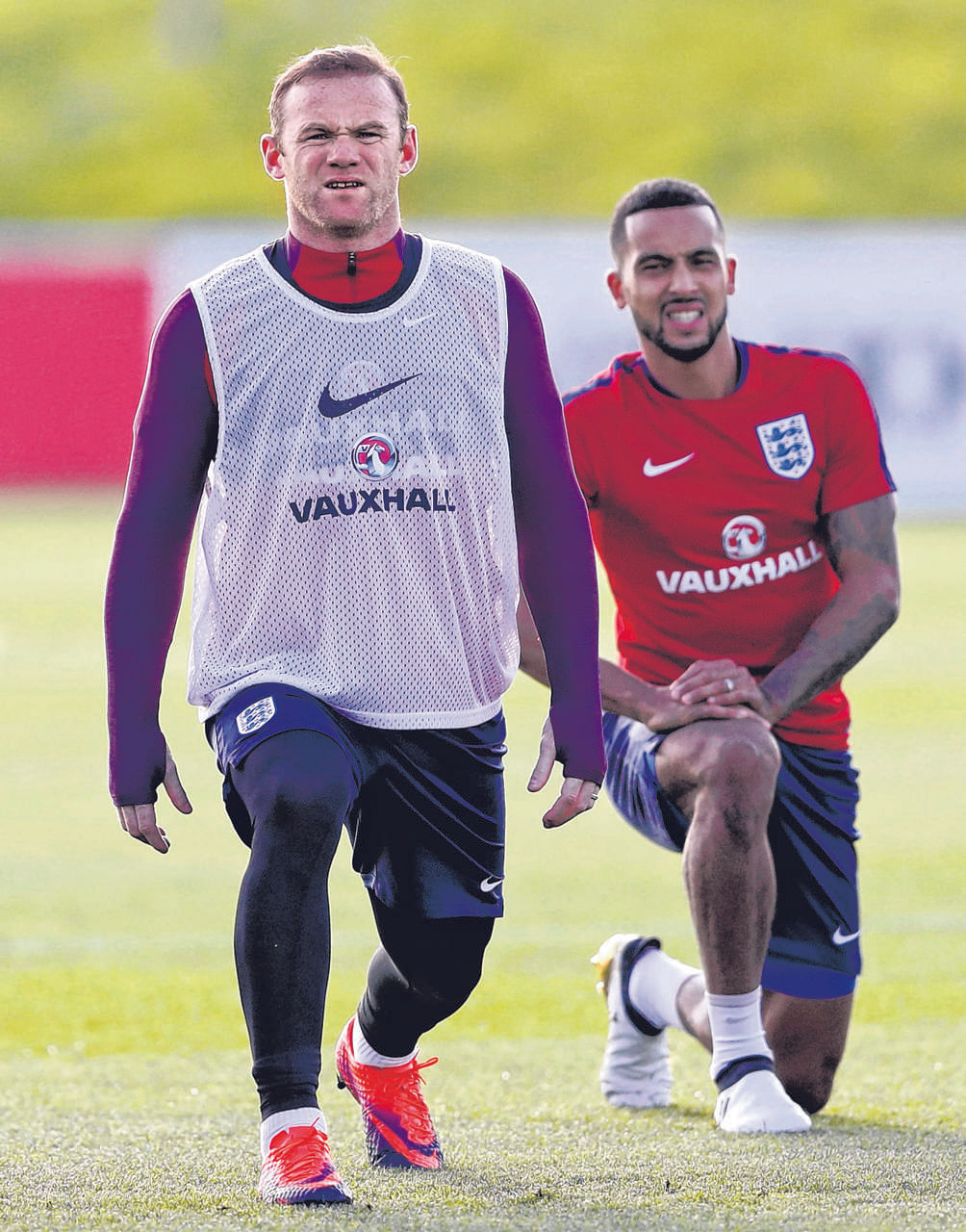While the English media, and successive managers, seem fixated with what to do about Wayne Rooney, the interim England manager Gareth Southgate made a point in recalling Theo Walcott.
"I think we have to share the leadership," he said at his pre-match press conference on Friday.
"That's one of the reasons I asked Theo to do the media today.
"We're putting too much emphasis on one person. If these guys are going to be a successful team, that's got to be shared. These guys have to be given the opportunity to lead, to grow, to take responsibility."
To have responsibility thrust upon them?
Last night, in front of a full house at Wembley Stadium, was not expected to be the mightiest contest. Malta, after all, are ranked 176th in the world.

But this was the first home game since that shambolic day in June when England fell at the feet of Iceland.
Rooney played in that one, Walcott did not.
When you are looking for shared responsibility, for leadership, the contrasts between the two men for club and country over the past decade could not be more marked.
Rooney is England's, and Manchester United's, totem scorer, which is quite some achievement given that he was never blessed with outstanding pace or the litheness associated with players of longevity.
Put it this way, Rooney never looked like Ryan Giggs.
Walcott, perhaps, does. Walcott has the gift of quickness that comes through his Jamaican dad's genes (Jamaica, remember, is the land of Usain Bolt).
On his day, and there have been a few lately for Arsenal, Walcott combines that natural speed with the balance and poise of a winger who swoops to score in the blink of an eye.
Rooney's boisterous spirit, and his bull-like will? Or Walcott's swiftness that once made Pep Guardiola say: "You would need a pistol to stop him."
Not a pistol, just the fragility of his own make up. Walcott's career has been a stuttering saga of rich promise punctuated by regular breakdowns of muscular injuries.
Statistics are increasingly the way that people in the game, and on the sidelines, judge everything.
In that case, here are the facts. Prior to last night, Rooney had played 116 times for England and scored 53 goals. And for Man United, where he transferred as a teenager from Everton, he has piled up 246 goals in 530 games, by no means all of which from a striking role.
Walcott has played 351 times and scored 90 goals for Arsenal since he, too, transferred from Southampton as a gifted youth. For England, though, Walcott's record totalled only eight goals from 44 caps.
Rooney is 30, and for a man of such heavy frame that might well mean that he is on the way down. He describes himself as slowing, and reliant on his "football brain".
Walcott is 27, and people are not shy of reminding him that by that age, Michael Owen had scored his last goal as an England player.
The implication is that Owen was a fast, instinctive finisher who admits, now that his career is over, that he paid a price in terms of repeated tendon and ligament injuries resulting from the load put on sinews when he was a prodigy.
Fast tracking of fast players, regardless of their growing pains, has truncated many a promising player. Would it be better in that sense to have a sturdy bull like Rooney than a sensitive quicksilver mover like Walcott?
It's a subjective argument, but one that another exceptionally quick and elegant England player, Trevor Francis, suffered from in his prime.
I wrote a book with Francis on The Anatomy of the Million Pound Player. A surgeon who repaired Francis' torn Achilles told us that nature's gift of fast fibres was handicapped by those fibres snapping under the strain of moving, twisting and turning at such rapid speed.
Rooney never feared any such frailty. Walcott suffered shoulder, back, knee, hamstring and abdominal muscle tears. His worst injury, ruptured anterior cruciate ligaments in his left knee, cost him the whole of 2014.
It was an injury that, long ago, meant the abrupt end to a footballing career.
Even when the torn strands have healed or been replaced, the rest of the body has to be built back up again. So, too, does the mental state of the athlete.
There was suspicion that Walcott, cushioned by the almost paternal manager Arsene Wenger, was softened in the head (or the spirit) by his periodic brushes with pain and muscle wastage.
No-one levelled such doubts at Rooney, not even after he had his metatarsals (small bones in the foot) crushed three times in three years. He bounced back, a force of willpower over medical doubt.
Right now, something else afflicts Rooney. He has reached the dreaded 30. He has had four Manchester United managers in three years (five if you count the interim management under Giggs) who differed in opinions about his value to the team.
Alex Ferguson started it, putting Rooney further back in midfield. David Moyes, Louis van Gaal and now Jose Mourinho all had their own views on where Rooney best suited the team. And now Mourinho has made him a substitute.
Rooney is fighting the dying of his light, at 30!
Walcott appears to have gone through that prematurely. When he could trust his body, he had aspirations of becoming the second Thierry Henry - a winger who can be devastatingly potent down the middle.
But he is now back on the right wing, free to cut inside and shoot. Five goals in eight games has thrust him right back into the England line-up.
Iceland didn't taint him because he was not even in the squad for the Euros.
Before yesterday, Walcott started just three games for England in three years. He puts in the hours with a personal trainer and Arsenal's team psychologist.
"I'm working tremendously hard," Walcott said on Friday. "I just want to be better. It comes down to myself and how determined I am to do it."
Responsibility is Southgate's word for it.


